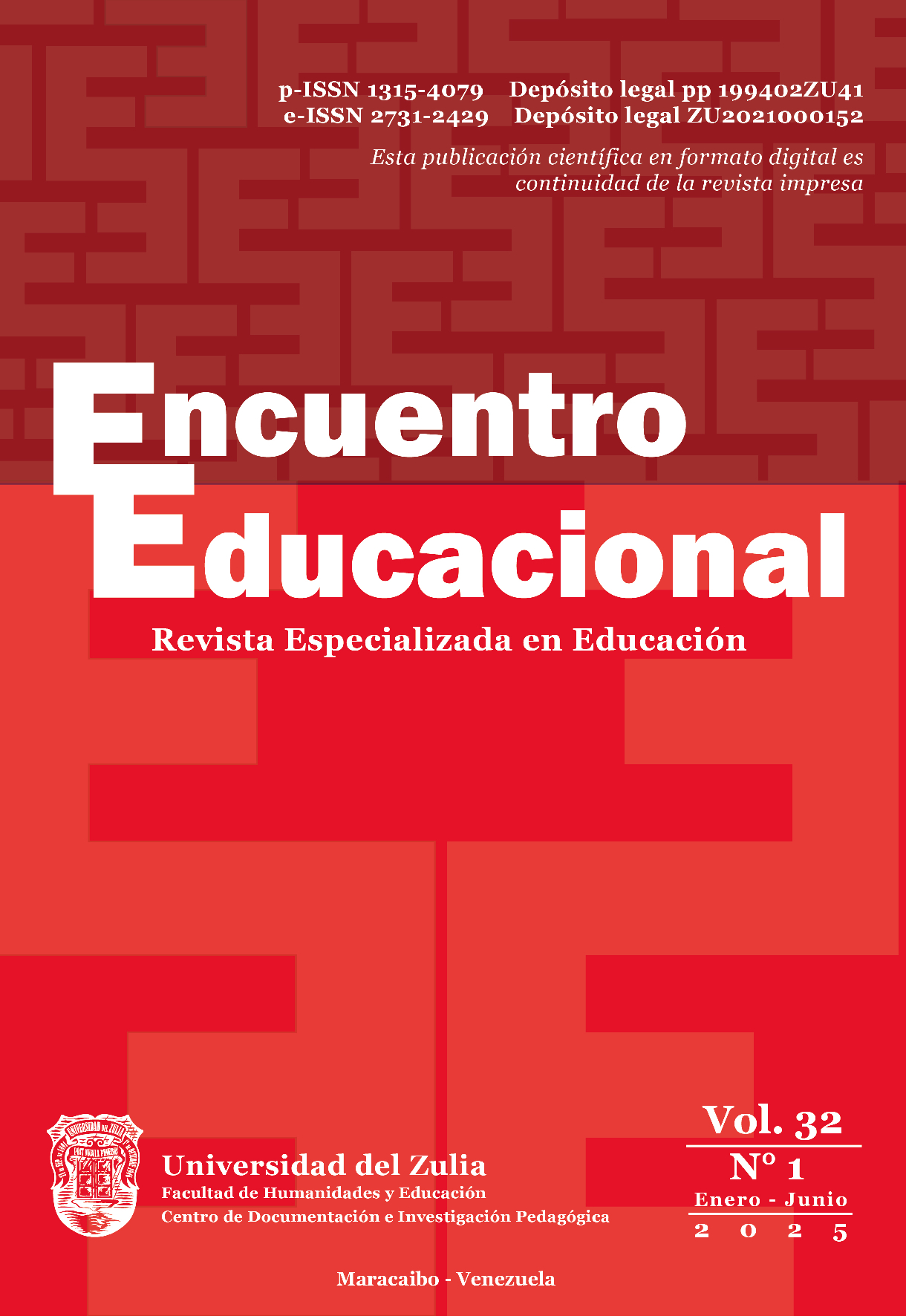Recreación: Acción Integradora en la Optimización de una Condición de Vida Saludable en Estudiantes Universitarios
Recreation: Integrative Action to Optimize Healthy Living among Physical Education Student
Abstract
It is essential for universities to include recreation in their curricula as an activity that fosters the development of actions aimed at developing students' physical fitness, basic motor skills, and sports skills associated with their environment. This research aims to establish the importance of recreation as an integrative action in optimizing healthy living conditions for students majoring in physical education, sports, and recreation. The methodology was based on the positivist paradigm, with a quantitative, descriptive approach and a field design. The sample consisted of 19 faculty members and 187 students from the Universidad del Atlántico and the Universidad Autónoma del Caribe in Barranquilla. Data was collected using a 45-item questionnaire. Descriptive statistics were used for data processing, using arithmetic mean analysis. The results reveal that the integrative elements of recreation are considered important by both faculty and students, as they are considered vital aspects for students' biopsychosocial well-being. In conclusion, it is highlighted that recreation, as an integrative action for optimizing healthy living conditions, is key to the well-being of physical education students, as it improves mental health, reduces stress, strengthens motivation, generates joy, optimizes physical fitness and performance, and fosters cooperation and a sense of community.
Downloads
References
Acosta, L. (2018). La Recreación: Una estrategia para el aprendizaje. Editorial Kinesis. Versión digital.
Bonilla, V. (2023). La recreación como motivación y medio para el aprendizaje en contextos vulnerables [Trabajo de maestría. Instituto Universitario Normal de Montevideo]. http://repositorio.cfe.edu.uy/123456789/2836
Burgos, F. (2018). Perfil del docente que requiere la educación actual. Editorial Santa Bárbara.
Candela, Y., & Benavides, J. (2020). Actividades lúdicas en el proceso de enseñanza-aprendizaje de los estudiantes de básica superior. Revista de Ciencias Humanísticas y Sociales (ReHuSo), 5(3), 90-98. https://revistas.utm.edu.ec/index.php/Rehuso/article/view/3194/3227
De La O Radilla, C. (2022). La recreación y sus múltiples beneficios. Gaceta CCH. UNAM. Mx. https://gaceta.cch.unam.mx/es/la-recreacion-y-sus-multiples-beneficios
Donaire, Z., Aragón, A., Gracia, N., Esparza, B., Calleja, M., & Liesa, A. (2025). Salud y calidad de vida: estrategias para una vida activa y saludable. Revista Ocronos, 8(3), 188. https://revistamedica.com/salud-vida-activa-saludable/
Flores Benalcazar, I., Verduga Shiguango, H., Gallo Cando, K., Gallo Calero, G., & Gallo Calero, J. (2024). El juego cooperativo en el desarrollo de habilidades sociales: Una revisión bibliográfica. MENTOR. Revista de Investigación Educativa y Deportiva, 3(7), 166-186. https://revistamentor.ec/index.php/mentor/article/view/6723
Fuentes-Vilugrón, G., & Lagos-Hernández, R. (2020). Razones para la no práctica física y deportiva en adolescentes de la región de Araucanía, Chile. Pensar en Movimiento: Revista de Ciencias del Ejercicio y la Salud, 18(2), 1-14. https://doi.org/10.15517/pensarmov.v18i2.40531
González, K., Arias, C., & López, V. (2019). Una revisión teórica de la creatividad en función de la edad. Papeles del Psicólogo, 40(2), 125-132. https://www.papelesdelpsicologo.es/pdf/2901.pdf
Hernández-Sampieri, R., & Mendoza, C. (2018). Metodología de la investigación. Las rutas cuantitativa, cualitativa y mixta. McGraw Hill Education.
Morillo Hurtado, C., Cajiao Narváez, S., & Sandoval Jaramillo, M. (2021). La recreación en los adolescentes. Su importancia en el desarrollo biopsicosocial: Una aproximación teórica-descriptiva. Explorador Digital, 5(3), 110-125. https://doi.org/10.33262/exploradordigital.v5i3.1787
Noda Rabelo, Y., Cuesta Martínez, L., Pérez Sánchez, A., Bolufé Fernández, Z., & Díaz Leal, Y. (2024). El tiempo libre y la recreación, en el contexto de las Escuelas de Iniciación Deportiva. Pódium. Revista de Ciencia y Tecnología en la Cultura Física, 19(2), 1-17. http://scielo.sld.cu/pdf/rpp/v19n2/1996-2452-rpp-19-02-e1674.pdf
Ramos, F. (2010). Planificación de la Recreación Comunitaria. Editorial UPEL.
Reyes Rodríguez, A., Altuve Mejía, E., & Arandia, G. (2021). Investigación en recreación, ocio y tiempo libre en Venezuela. Tendencias subyacentes. Revista Ciencias De La Actividad Física UCM, 22(2), 1-21. https://revistacaf.ucm.cl/article/view/705
Ruiz, A. (03 de junio de 2024). Beneficios de la actividad física y recreación para cuerpo y mente. https://pensamientoamplio.net/actividad/beneficios-de-la-actividad-fisica-y-recreacion-para-cuerpo-y-mente/
Sierra Bravo, R. (1997). Técnicas de Investigación Social (9ª edición). Editorial Paraninfo.
Spoelstra, S. (2020). The truths and falsehoods of post-truth leaders. Leadership, 16(6), 757-764. https://doi.org/10.1177/1742715020937886
Torres, J., Contreras, S., Lippi, L., Huaiquimilla, M., & Leal, R. (2019). Hábitos de vida saludable como indicador de desarrollo personal y social: discursos y prácticas en escuelas. Calidad en la Educación, (50), 357-392. https://dx.doi.org/10.31619/caledu.n50.728
Vera, G. (2012). La recreación, base fundamental para el desarrollo humano (6ª ed.). Editorial Edufir.
Waichman, P. (2018). Tiempo Libre y Recreación. Un Desafío Pedagógico (5ª ed.). Editorial CCS.


















